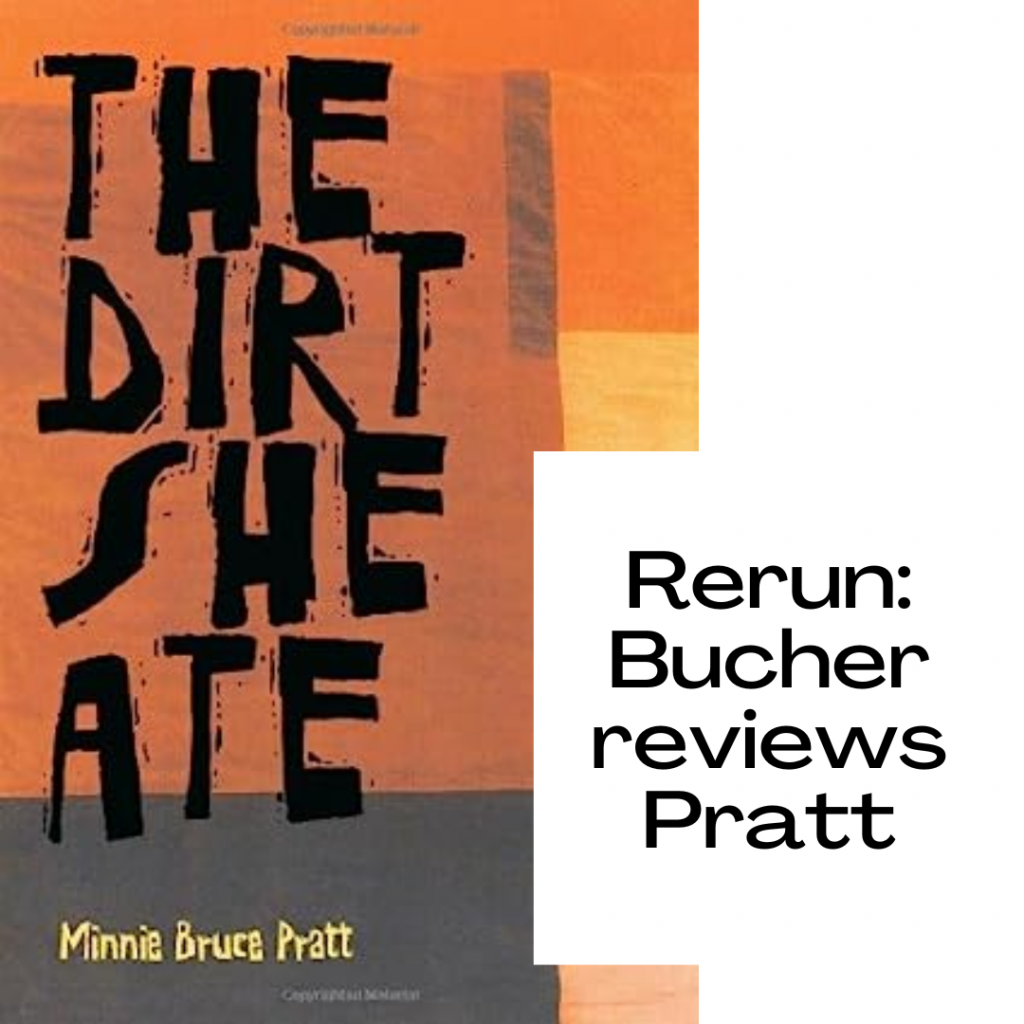Saturday Review: “A book of pages waiting to be turned” a review by Christina G. Bucher of Minnie Bruce Pratt collection The Dirt She Ate: Selected and New Poems. (2003) from NCLR 15 (2006).
Since it is summer, we’re rerunning older book reviews. This week, we honor the memory of Minnie Bruce Pratt, who passed away early this month.
Bucher starts the review with: “Several constituencies of poetry lovers should be delighted with the publication of Minnie Bruce Pratt’s The Dirt She Ate: Selected and New Poems: Southerners, lesbians, Southern lesbians, mothers, both whites and blacks committed to battling the insidious racism that still plagues our culture, folks from anywhere committed to social justice, academics who wish to teach her body of work, and, perhaps most importantly, those who cherish well-crafted, evocative, lyrical poetry, whether shorter “imagistic” works or longer narrative pieces.”
An entire generation has now been born and come of age since Pratt released much of this consolidation of poetry. Which is precisely why we do the work we do at NCLR: to preserve and promote our rich literary culture through time here in NC. Pratt may not have been native to our state but contributed so much during her time her that her work deserves to be remembered for her importance to the afore-mentioned literary groupings.
Bucher’s review highlights poems from prior published material as well as new work. She also points towards the deliberate intersectionality of Pratt’s work: she writes about both her sexual yearnings and her anti-racism work, both very problematic to her personal life and yet important to her sense of self and doing right in the world.
Bucher is rather prescient at one point, stating “These short poems are lovely, evocative, and hold within an understanding and celebration of working-class Americans – not academics, not the wealthy, but those who toil for what they have and perhaps gamble for what they hope for. One wonders if Pratt’s next volume will build on the poems she has included here.” Pratt does indeed go onto to write and advocate for the working class in her later work.
We’d love to know if there are any professors teaching Pratt’s work, along with other North Carolina women writers. While the LGBTQ+ movement and freedoms have come far, thankfully (although there is so much more to gain), much of Pratt’s experience and work are still relevant to today’s North Carolina poet.
